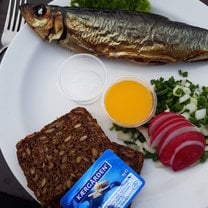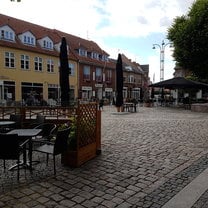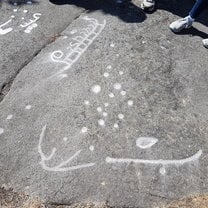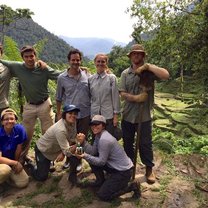I am one of the most indecisive people I know. To overcome this, I've developed the tendency to make snap decisions about important things, which is pretty much how I ended up in Ireland last summer.
I took an introductory archaeology course the first semester I was at college and found it the only class that I was excited to wake up for at 8 in the morning. When I started thinking about how I wanted to spend the summer after my freshman year, I couldn't think of anything else I'd rather do. I chose the Inishark program because my archaeology professor knew the professors running it and told me I'd like them. Part of me expected to hate it - dirt, early mornings, digging. Things I hadn't enjoyed since elementary school. But I packed (and bought) all of my gear for the summer and shipped off to Dublin at the end of May, figuring that at the very least, I'd get to spend some time in a beautiful country.
The first day in Ireland, I got on the wrong bus, got off at the wrong stop, walked an hour through Galway with my suitcase, and showed up too early to my Airbnb. It was great. I spent a few days in Galway by myself, exploring the city before I met up with the IFR group I'd be spending the next month with. We took a van across western Ireland, then loaded onto a ferry to cross the ocean to Inishbofin, a small island that now holds some of my favorite memories.
Inishbofin is a breathtaking mixture of craggy cliffs, long grasses, white sand beaches, furry pigs, and a depth of history I'd never encountered in America. The Doonmore, the hotel & restaurant we stayed at while on Bofin, was welcoming and supportive of our ragtag group of archaeologists (and archaeologists-to-be). It's where I fell in love with sticky toffee pudding, discovered the appropriate ratio of Guinness to Smithwicks, and heard the kind of tales only Irish storytellers can create.
Leaving Bofin was hard, but leaving Shark a few weeks later was even harder.
The brunt of our field school was spent on the island of Inishark, twenty minutes by ferry from Bofin. Shark was abandoned in 1960 but bears the marks of habitation from as early as the Bronze Age. The twentieth century stone settlements are more obvious, but history became visible the closer I looked.
Living on Inishark is one of the most challenging things I've ever done. It didn't quite register while I was there, but once I returned to my parents' home in Pennsylvania, I realised how much I had grown over the month.
There is no running water on Inishark. No electricity. We brought everything we needed - water, food, toilet paper - on one ferry and took it back on another when we left the island. The bathroom was wherever camp was out of sight, though this illusion of privacy never quite extended to the sheep that wandered the island. The buildings that were still standing were, for the most part, without roofs and dangerous to sleep in, so our homes were bright orange tents that dotted the rolling hills by St. Leo's church. The sky never seemed to go dark until ten or eleven, and the sun and its chorus of birds frequently woke me before five. It was the best I've slept in years.
During the days, I worked on Clochán Leo, a medieval Christian beehive-shaped stone construct perched on the edge of a cliff that slowly sloped down into the ocean. It was frequently windy and rainy. For a week, I took my waterproof pants and jacket off only to sleep at night. Every morning, I woke excited to take up my trowel and went to bed exhausted but immensely, wonderfully satisfied. We moved buckets upon buckets of dirt and sod to return to a medieval layer of soil in the clochán and the surrounding area. We found the remnants of a tea party and of early Christianity, every day going back a little further in time.
I'm sure my friends and family have since grown sick of how much I talk about Shark and Bofin. The people I met on the dig were a unique group that I still stay in contact with and think about today. The history I helped recreate brought a passion back into my life that I realised I had been missing for years. As a result of my IFR experience, I taught a course at my university on Irish culture, worked on another excavation in south Texas, learned how to play a ukulele, discovered a surprising interest in medieval Christianity, and fell even more in love with archaeology than I thought possible.
I don't know where I will go in my next two years of college or what path I'll take after I graduate, but I know that archaeology will be a part of it. And for that, for my time on Shark, I am unimaginably grateful.












